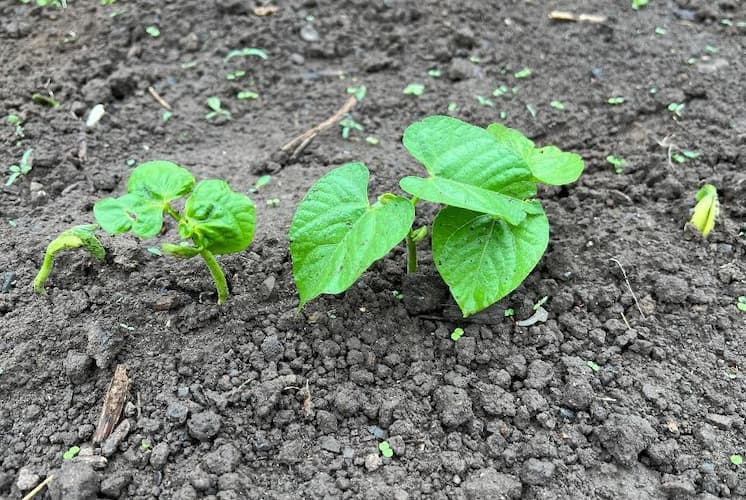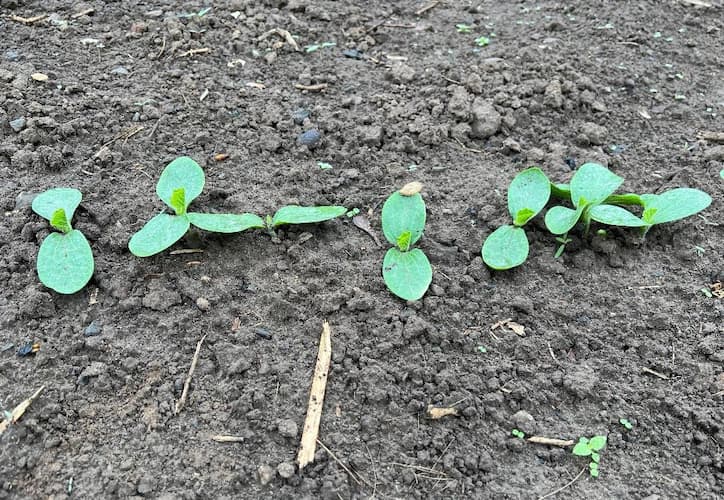Why Seeds Don't Sprout, Causes and Cures

Sprouting Seeds is not a Guarantee
We all agree… seed sprouting should be easy. Well, for some seeds, sprouting certainly is fast and easy. For, others it can be difficult and takes weeks to occur. But there’s no guarantee. Experts agree the most common question they are asked each spring is: “Why seeds don’t sprout?”
Are you providing ideal seed sprouting conditions for your seeds? Let’s find out…
Why Seeds Don't Sprout
By far, the most common reason why seeds don’t sprout, is that they are planted too deeply. If it is too deep, the seedling struggles to emerge.
Heavy, clay soils make it difficult, if not impossible, for a seedling to break through the cement-like soil.
Soil and temperature conditions may not be ideal. This can delay germination, or result in the seeds not sprouting at all.
Another “cause” is the anxious gardener, who is unaware of how long it takes to sprout a particular seed. Some seeds sprout in as little as three days. Others, take two or more weeks.

The Remedies
First and foremost, plant seeds at the proper depth. Consult the seed packet, for this information. We also, recommend, sowing seeds, slightly LESS deep than indicated. You can always add soil around a seedling after it has grown a couple of inches.
TIP: Fine seeds can wash too deeply into the soil, by just watering them. For fine seeds, sprinkle them on top of the soil. Then, add a dusting of starter soil on top. Water lightly.
When planting outdoors in heavy clay soils, mix in ample amounts of compost, to make the soil lighter and looser. When you dig the hole or furrow, drop in the seeds, then cover with a layer of starter soil.
Moisture levels are very important. The best rule of thumb is to keep the soil moist, but not wet. If the soil is dry, then moisture doesn’t penetrate the seed cover to begin the germination process. Wet soils, result in the rotting of the seeds.
Soil temperatures are too hot or too cold. It takes a minimum temperature for a seed to germinate. There is a maximum temperature for successful germination, over this temperature, the seed “cooks”. The ideal temperature range varies by type of seed. The ideal range for most garden plants is 70-85 degrees. Cool-weather crops germinate at the lower range. And, warm weather crops germinate at higher temperatures in this range.
For outdoor plantings, try a raised bed, or a raised row. This helps to warm the soil and helps avoid overly wet soils. See Raised Beds.
Heated germination mats are highly recommended for indoor starts.
Consult the information on the back of the seed packet. It should tell you how long its germination will take before sprouting, under ideal circumstances.
Old seeds may no longer be viable.
Valuable Seed Germination Tests
If you save your own seeds, or keep leftover seeds from prior years, a seed germination test is invaluable.
Perform a seed germination test in the middle of winter. As a result, you will know your seeds are viable and will sprout when planted in the spring.
Related Articles
People who read this article also like:
Please support our site. Shop for:
- rmmatthews100@hotmail.com
- 585-721-6528
- Rochester, NY
©1999-2024 GardenersNet.Com, All Rights Reserved

